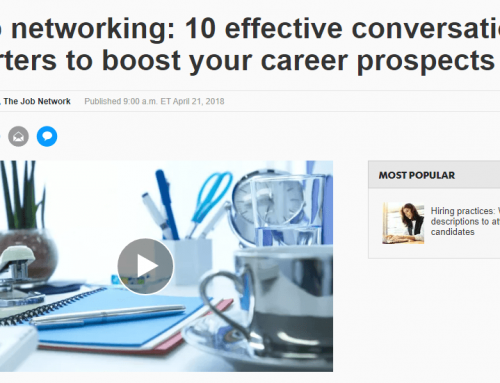You may have heard of the “Great Resignation” or “The Big Quit”. It has been a post & conversation topic on LinkedIn and other social media outlets for the last 6 months. This blog outlines the 5 Ways to Take Advantage of The Great Resignation.
The great resignation is the American phenomenon where employees, mainly in the 30 – 45 age category have been resigning from their jobs at an astonishing, record-breaking rate. The data shows that roughly 33 million Americans have quit their jobs since the spring of 2021.
This trend is predicted to occur in Australia in 2022. PwC Australia, in a survey of 1,800 workers, found 38 per cent want to find a new job in the next 12 months. The Australian Bureau of Statistics figures more than 600,000 Australians expect to be with a new employer in 2022, or 5 per cent of the total workforce.
Why Are Workers Opting for Great Resignation?
The “Big Quit,” as it’s often known, began in mid 2021 and is gathering pace globally. It seems that the Covid pandemic has made people re-think their careers and their expectations from their working life. The major reasons for employees quitting their job are:
- A desire for better working better work / life balance
- Better wages / salaries
- Better working conditions
- Greater flexibility about where and how they work.
In short people are looking for a new way to work and the “Great Resignation” may be the start of a major shift in how we work and how we view our “careers”.
The “Big Quit” does present you with many new career opportunities.
Taking Advantage of The Great Resignation
There is a lot of job-hopping AND a lot of career advancement opportunities. However, before you can take advantage, there are 5 things you need to do:
-
Pick your job target
This refers to selecting your next job role and, in some cases, your next employer. You need to be specific and identify the role as best you can to a clear title.
This is important as it gives you clarity, focus and drives to achieve the goal. It also allows you to speak with your network, recruiters or prospective employers confidently about your career vision.
For example, if you are an Associate Lawyer, don’t say “I want a step up”, but rather say, “I am looking for a Senior Associate role”.
If you are in the public service, don’t say, “I am looking for something different”, but rather say, “I am looking to step up to Salary Band 6”. If you are an Analyst, say, “I am looking for a Senior Analyst role.”
Clarity is something your network will appreciate when providing you introductions and potential leads.
Also know the salary you want and the working conditions that will help you perform at your best.
Also understand that career move should either progress your career forward OR provide you with opportunities to develop new skills and have new positive work experiences.
When picking a new job or employer, make sure that you have room to grow in the role or the company. There is no point jumping into a “dead-end” job.
-
Know yourself
To pick the right role for you, you must clearly understand your strengths, your skills, the tasks you enjoy doing, and the type of workplace culture that helps you thrive. Being clear about these things will help you find the next role where you will succeed and prevent you from landing and making a bad career choice.
Knowing why & how you fit in the role you are targeting or the new company you want to work with is exceptionally important.
You need to show self-awareness and job role awareness (know what it takes) and company awareness (know how you fit in).
A great way to know yourself better is to speak to a mentor or seek professional advice from an expert career coach. It is amazing how a career coach can help you see your strengths AND uncover your blind spots.
I offer free 45-minute career chats that help professionals know themselves better.
Click here to book a free career chat with me.
-
Get the word out
Networking is an essential aspect of changing jobs & building a career. Recent research by Hubspot research found that “85% of jobs are filled through networking”, and CNBC reports that “70% of jobs are never published publicly”.
If you want to benefit from the “great resignation”, you need to get the word out to your network that you are ready for a new role or employer. This is where all the effort you put into step 1 Pick your job target becomes invaluable because your network is only as effective as you are clear about the type of role and employer you are looking for.
Your network is an invaluable source of connections, leads and introductions; however, they will only be impactful IF they have a clear understanding of what you are looking for so that they can connect you to the right people.
-
Apply
It doesn’t matter if you find your next role on a Job Board or via your network. You will need to go through the official channels to apply and “win” the role. Gone are the days when word of mouth endorsement would land you in a role whilst bypassing the recruitment process. Nowadays, everyone must go thru an official selection process.
This means you need to have your CV and LinkedIn profile updated. The right CV for the right role is extremely influential in progressing to the interview stage.
I encourage my clients to tweak their CVs for each role to ensure maximum opportunity for success.
Remember, being successful in your job search always hinges on:
Your CV because this is how the selection panel determine if you can complete the requirements of the role, and
Your interview performance generally measures your ability to fit with team & workplace culture.
-
Prepare for your interview
To prepare for your interview, your need to:
- Google behavioural questions for the job you are applying for and prepare yourself to understand the questions you might be asked.
- Practice your responses to sample behavioural questions using the STAR Technique.
- Prepare & practise the examples you are going to use in the interview.
- Prepare every question you will ask them about the workplace.
- Ensure you know how to use Zoom and that it functions properly before the interview.
- Know what you want in relation to salary and work conditions.
Following these five steps will put you in a position to take advantage of the job opportunities being created by the great resignation.
However, you need to always remember that you should have good reason for quitting your existing job because “the grass is not always greener” with your new employer. Indeed, many of my clients have expressedregret when quitting a job for the wrong reasons.
Before making the decision to quit I encourage you to read my blog “Should you quit or should you stay?”
Conclusion
The Great Resignation could be useful to your cause, whether you want to quit your work and alter your professional path, or you’re pleased to stay in your current position but would like to see some added rewards.
If you’ve been considering a career move, now might be the time to do so, but don’t resign on the spur of the moment to follow the crowd.
Photo by Brooke Cagle on Unsplash







